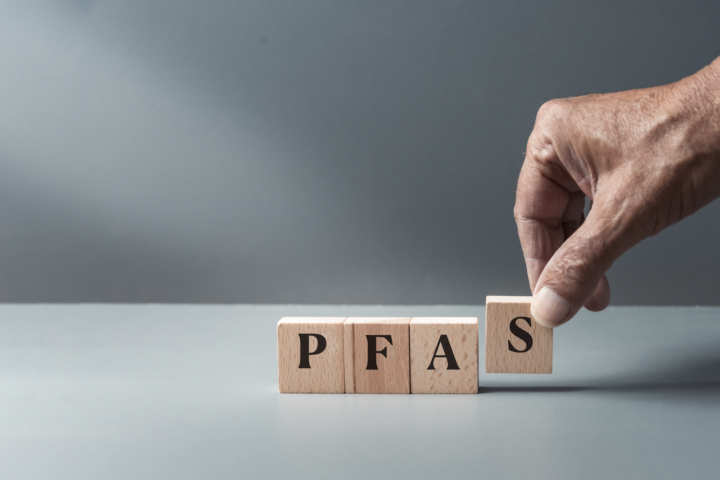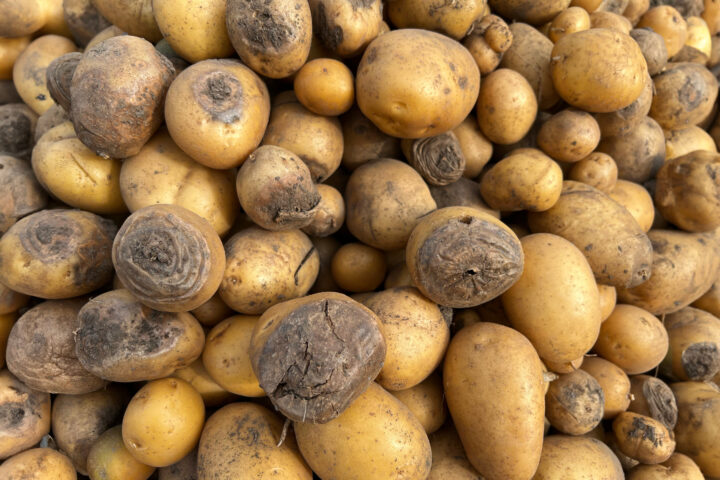
Questions about solidarity in agricultural production remain open
The war between Russia and Ukraine threatens the global food supply. Security of supply is also becoming an issue in Switzerland. In the last spring session, parliamentarians from various parties wanted to know from the Federal Council how it intends to react to the changed global food supply situation. The Federal Council's replies do not yet reflect a fundamental reassessment of the situation.
Wednesday, March 16, 2022
Ukraine and Russia are responsible for around 40 percent of global wheat production. As a result of the conflict between the two countries, food prices have skyrocketed. Crop failures due to the fighting are threatening the food supply of many countries - especially in North Africa and the Middle East. The FAO is already warning of additional hunger. Rich Switzerland is not primarily affected by the supply crisis, but things can get tight for people in poorer countries. The FAO already expects hunger to spread. Domestic production is thus also related to solidarity. The warning signs are there. What actually happens next depends on how the situation in Ukraine develops.
Burning questions...
Against this background, National Councilor Alois Huber (SVP, AG) wanted to know from the Federal Council during question time what measures it is taking to increase food self-sufficiency and thus relieve poorer countries (22.7283). National Councilor Martin Haab (SVP, ZH) asked a similar question. He wanted to know from the Federal Council to what extent it intends to include the challenges of ensuring global food security in Switzerland's future agricultural policy (22.7256). National Councilor Ida Glanzmann-Hunkeler (CVP, LU) wanted to know: “How can Switzerland assume its responsibility and increase its own agricultural production in solidarity so that increasing imports do not promote hunger in the world?” (22.7202). And National Councilor Alois Gmür (CVP, SZ) asked the Federal Council: “What is the Federal Council doing in view of the looming global supply crisis in the food sector?” (22.7223).
...waiting answers
The Federal Council remained vague in the answers and initially responded with numbers: Switzerland's direct dependencies are relatively small. “In terms of the total volume of imports per product, only 2 percent of the grain, 4 percent of the animal feed and 4.5 percent of the vegetable oils and fats imported into Switzerland come from these two countries.” (22.7223) He refers to existing agricultural policy instruments, such as the possibility of adjusting direct payments and contributions for individual crops, which could be used to create incentives for increased production if necessary. The Federal Council also emphasizes that compulsory stocks can be released in the event of acute supply bottlenecks. Various intervention measures would be checked on an ongoing basis. These include import promotion, sales restrictions or production optimization to increase the degree of self-sufficiency. However, the Federal Council replies: “However, optimizing production is not a suitable measure to overcome short-term bottlenecks.” The Federal Council does not appear to be contemplating long-term measures.
How and whether future agricultural policy will do justice to the new situation remains unanswered. Rather, he refers to the still outstanding report on the postulate 20.3931, “Future orientation of agricultural policy”, which is to be published in summer 2022. It will therefore be interesting to see whether the report also contains a new assessment of the situation with regard to security of supply. As far as the question of international solidarity for productive agriculture is concerned, the Federal Council has largely failed to answer the parliamentarians. However, it is hardly sustainable to rely on less and less productive agriculture and more and more imports in times of climate change and turbulent world markets. This is currently being shown painfully in energy policy.
Related articles

Assess scientifically instead of banning indiscriminately
The debate surrounding PFAS is gaining momentum in Switzerland. At its core are questions about potential risks to human health and the environment, as well as future regulatory approaches. A differentiated, science-based approach is essential – as emphasised by scienceindustries in a short interview with Dominique Werner, Head of Chemicals Regulation.

Faster Approval of Crop Protection Products Long Overdue
Switzerland diligently bans active substances that have also been withdrawn from the market in the EU. Conversely, it is dragging its feet: modern products that are approved in neighboring countries remain blocked. With the adoption of the amendment to the Agriculture Act, the National Council has now taken an important step toward faster approval of plant protection products.

Differing perceptions
While the increasing administrative burden is perceived as the main concern in the economy, parts of the population see it differently. Meanwhile, regulations are repeatedly misused as a means of exerting power in the competitive struggle – to the detriment of SMEs.

Domestic production as a blind spot
Switzerland's food security is increasingly under pressure: last year's disastrous wheat and potato harvests have led to an increasing dependence on imports. However, the report by the Federal Office for National Economic Supply (FONES) is largely silent on the precarious state of the domestic agricultural sector. The IG BauernUnternehmen (Farmers' Company) has therefore sharply criticised the federal government.

